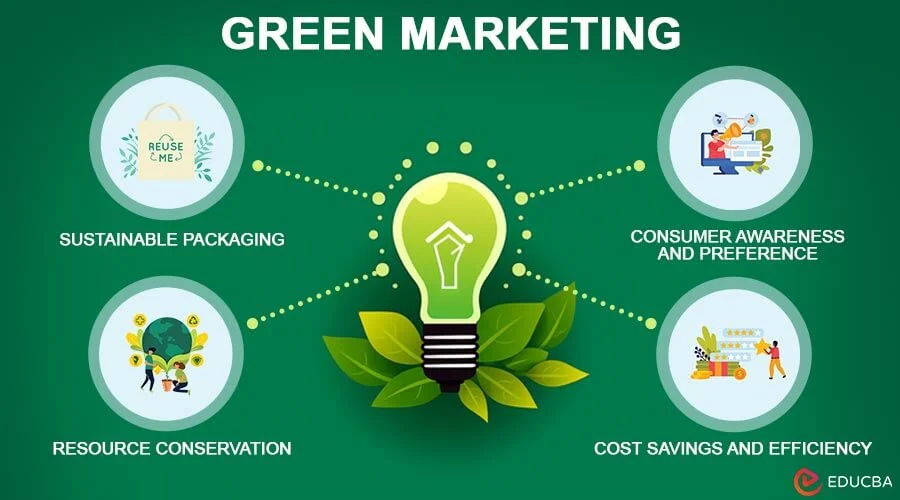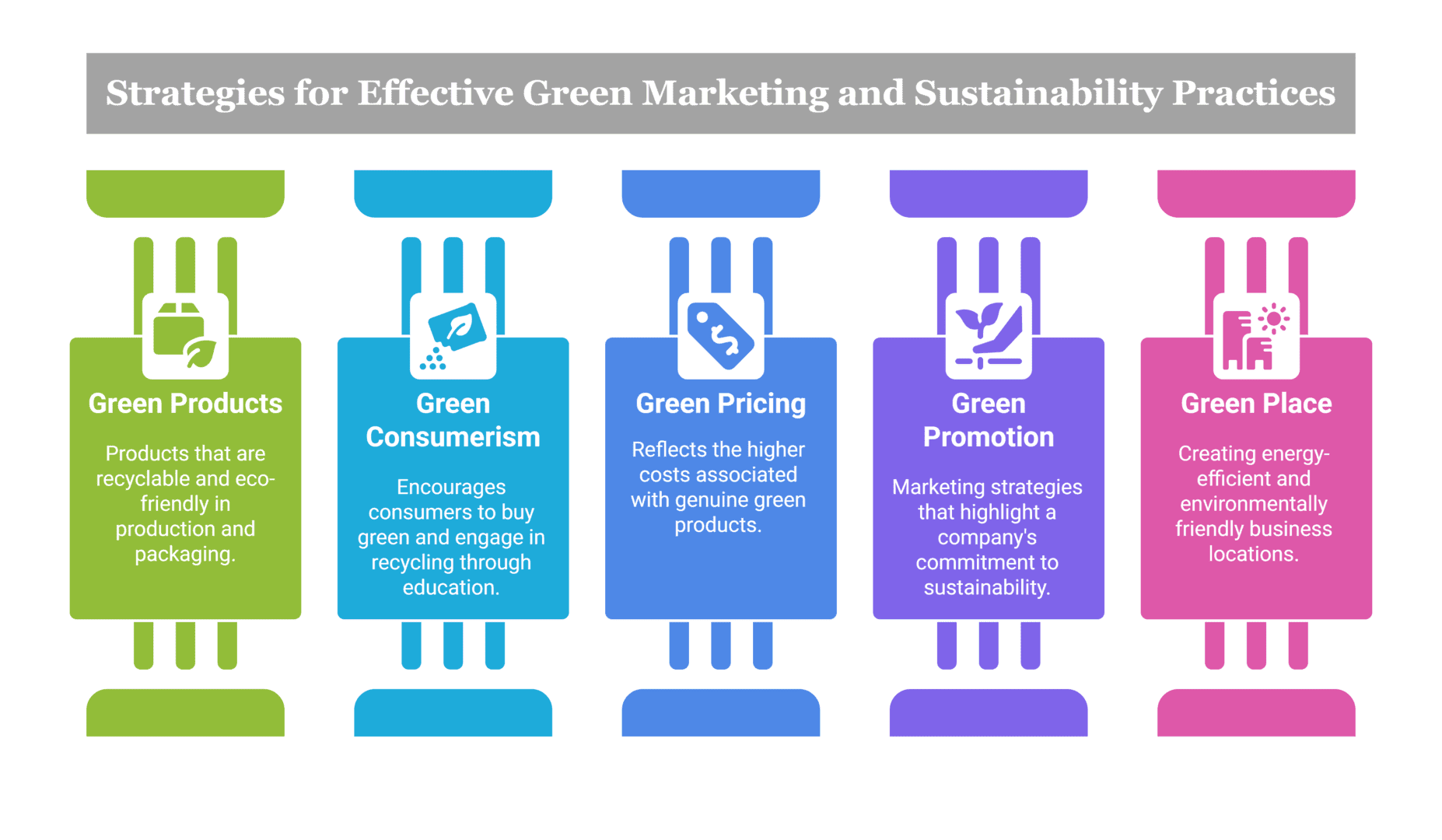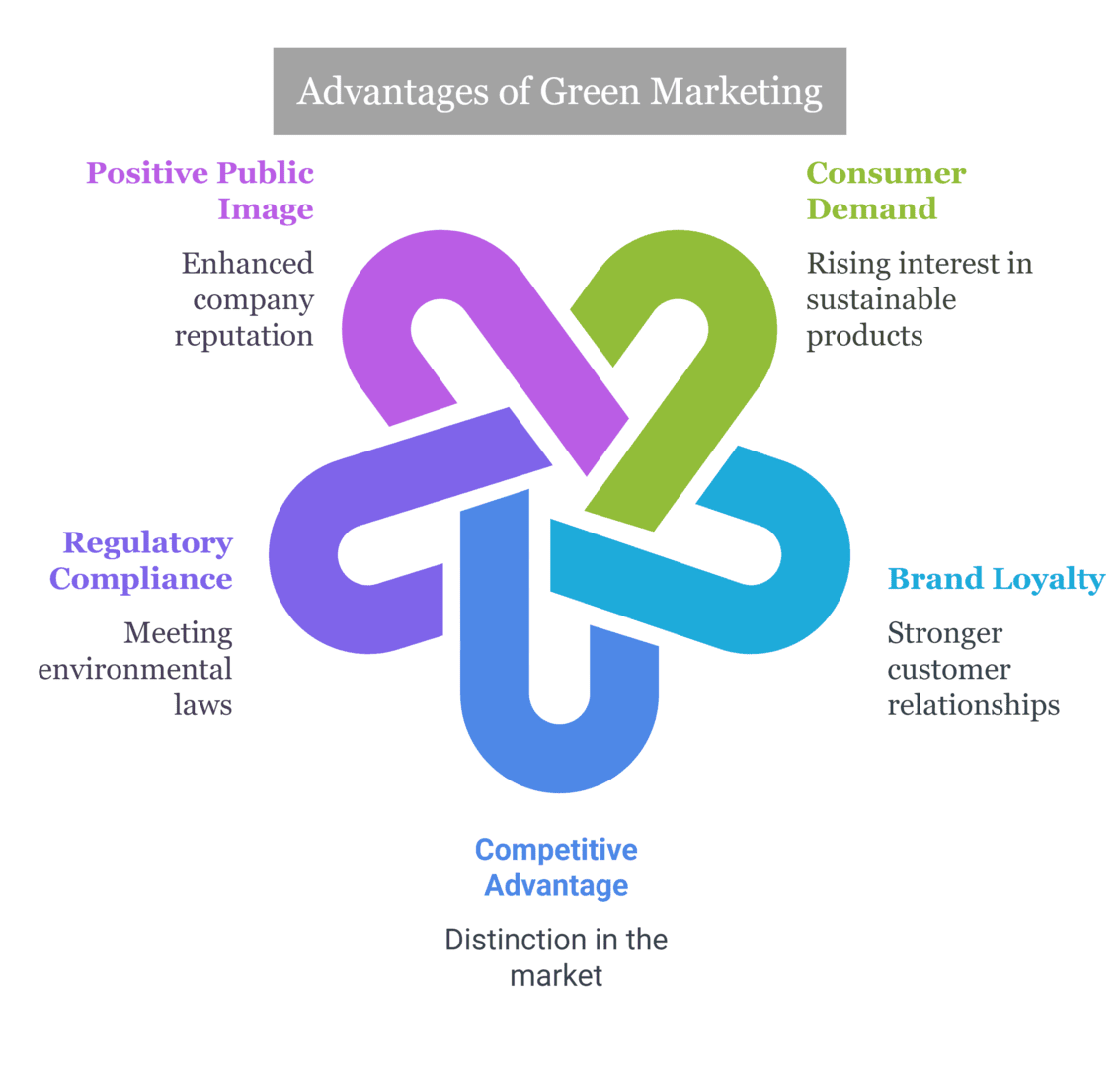What is the Importance of Green Marketing? The Complete Guide
Table of Contents

- jaro Education
- 6, September 2024
- 1:00 pm
Imagine you walk into a store, cogitate a little about what to buy, and finally grab a product. Meanwhile, you notice a distinct difference: eco-friendly packaging, sustainably sourced ingredients, and a sense of empowerment leading the way in reducing carbon footprints. Is that good for you? You are certainly not alone. Green marketing strategy has created this shift in consumer behavior, where quality is one factor among many in the endeavors meant to promote a healthier planet.
This being a time when consumers are more environmentally conscious than ever before, companies are rushing to adopt eco-marketing strategies that demonstrate their commitment to sustainability. From green marketing strategy campaigns to sustainable sourcing to minimizing the waste footprint, companies present themselves as environmentally considerate. But then, just how do you make your business cash in on this increasing trend, and what is required in the first place to stick out in the green marketplace?
This blog will explore the fascinating world of green marketing, its importance, major green marketing techniques, and case studies of companies making waves in the eco-marketing space. Ready to learn how going green might benefit your brand? Let’s get started!

*EDUCBA
Get The Baseline Of Green Marketing
Green marketing is an emerging business strategy in which goods and services are marketed according to their environmental benefits. The term includes products that are either eco-marketing in themselves or made with eco-marketing considerations. These products may include:
- Manufactured in an environmentally friendly manner
- Not containing toxic materials or substances that deplete ozone
- Recyclable or made of recycled materials
- Renewable materials like bamboo
- Does not encourage excessive packaging
- Repairable as opposed to being disposable
Some Green Concepts In Green Marketing

1. Green Products
Those products that can be recycled and are not harmful to the environment are called.
Green Products. They are made in eco-marketing ways, and they use eco-friendly packaging and promotion.
2. Green Consumerism
Green marketing strategy aims to involve the consumer through information and education, whereby even the desire to buy green and to recycle will become potential for green marketing. That is why green consumerism is said to have been found at this point.
3. Green Pricing /GAP
Since the manufacturing process of real green products begins with the procurement of genuine raw materials and real charges added to the prices for labor and materials, true green products are generally priced higher than ordinary products. This is the price gap between the so-called green products and non-green products, which is termed ‘green pricing’ or ‘green pricing gap.’
4. Green Promotion
Green promotion is giving an image of Go Green for their products and their brand in the market by correctly projecting these elements. Through green promotion, the companies claim to create and prove their concern for sustainable business and the environment.
5. Green Place
Green Place, in the context of green marketing strategy, is to create an environmentally friendly place.
Companies build energy-efficient buildings for their offices. Many corporate houses, be they big or small, are adopting this green marketing technique from Green Place. Tata created one building that is purely solar-powered and hence does not use grid power.
Why Green Marketing Is Growing?
A movement for awareness about climate change is in full swing now. The environment-friendly products and services are now being marketed by various corporations, enterprises, and brands. Are you someone who shops for anything made out of eco-marketing materials, say from synthetic leather shoes to couches, eco-marketing cars, or recyclable food containers?
This marketing area covers a wide array of activities, including:
- Product alteration
- Modifications in the manufacturing processes
- Changes in packaging
- Changing of advertisements
- Environmental production
- No hazardous or ozone-depleting substances
- Made from recycled materials or recyclable materials
- Harvesting from renewable resources
- No excessive packaging
- The product is designed for repair rather than disposal.

With sustainable marketing and corporate social responsibility gaining prominence for brands, more and more of them are attempting to create sustainable and environmentally friendly marketing strategies. Companies put more and more sustainable measures in place as an expression of their high social responsibility, hoping that it will create brand loyalty with consumers.
Examples of Good Green Marketing Practices
Another recent example of a green marketing strategy can be seen in IKEA’s announcement that very soon it would start selling renewable energy from solar and wind sources to individuals and households. Green consumers around the globe welcomed this announcement with positive smiles.

*DesignStripe
In the same way, Patagonia is the best example of a brand that encourages green marketing but does not suffer from the problem of trying to convince customers that every corner of its business is sustainable.
The store shares just the right amount with customers about the materials they use for which green alternatives are still unavailable while still ensuring that most of its products are made with environmentally friendly resources.
Starbucks has often been used as a reference case for green marketing strategies. The institution has sunk a lot of money into different social and environmental initiatives in recent times. For instance, according to a 2018 report, Starbucks estimated its investment in renewable energy projects to be more than $140 million.
Starbucks. “This Store Is Powered by Sunshine: Solar and Wind Power Fuel Starbucks Stores.”
The company “buys enough renewable energy to power all Starbucks stores in North America and the United Kingdom.”
The company also invested in social impact initiatives, including the Starbucks College Achievement Plan. Through this program, many eligible Starbucks employees in the U.S. work at least 20 hours a week and get fully paid tuition coverage for an online undergraduate degree program with Arizona State University.
This program and similar ones involving veterans’ employment have made up most of Starbucks’ green marketing strategy.
From an investor’s perspective, these are the types of green marketing initiatives that work effectively toward the building and sustenance of an attractive brand, primarily for consumer-facing companies such as Starbucks. Critics argue, however, that green marketing takes the advantages of large companies further, leaving smaller or mid-scale competitors at a disadvantage.
It is a matter of fact that the cost involved in robust social or ecological programs is always high. Larger companies can easily absorb these expenses, sometimes incorporating them into their marketing budget. These additional expenses, however, would highly affect the profit generated for smaller companies or the very existence of the business.
Companies Using Green Marketing
This marketing practice has gained massive prominence across India. Some companies that practice green marketing are:
- IKEA
- Timberland
- The Body Shop
- Coca-Cola
- Hershey’s
- Levi’s
- BMW
Green Marketing Best Practicalities
It is worth noting that if you want to make use of a green marketing strategy, then you’d better do so properly. Customers demand total honesty from brands in which they engage in marketing of this kind. Here are a few of the best practices:
- Ingrain sustainability into culture and values
- Embed green into all aspects of your production and marketing
- Teach employees the green way of life
- Communicate your sustainable vision to customers
- Work with organizations that support your green causes
- Support green initiatives
What Is Greenwashing?
Greenwashing represents the very opposite of green marketing. Greenwashing is a term coined by the environmentalist Jay Westerveld in 1986. It means misleading the consumer or audience into thinking that some product, service, or organization is environmentally safe or sustainable when, in fact, they are not.
In most instances, greenwashing is pure ignorance. However, with the matter concerning sustainability raised, pressure to comply with environmental standards has increased. As a result, companies that are not well-informed about their environmental impact are dying to show the world how wonderfully green they are.
Why No GreenWashing In Business?
In 2015, Volkswagen gained notoriety for deceiving the public about its sustainability initiatives. In the statement, the automaker admits using defeat devices to cheat on emissions tests for some cars. This meant an in-house proprietary software detection of emission tests and a corresponding level cut-off. They released up to 40 times the level of nitrogen oxide pollution while consciously greenwashing their products.
The greenwashing case also includes Nestlé and Lay’s potato chips, which are large contributors to the development of world plastic waste and have unsustainable processes.
It is observable across multiple industries and e-commerce verticals: in the automobile sector, where BMW advertised a zero-carbon electric car with the option of adding on petrol; in the hospitality industry, where services proudly boasted over sustainability awards that had been achieved for only one small operational improvement; and then in cosmetics, with companies like Tarte and The Body Shop being taken to task over suspected greenwashing.
It has become popularized because greenwashing is marketing and not a means of being responsible for one’s behavior. Green consumers are purchasing even more carefully regarding purchases not environmentally friendly, especially from Generation Z: the future consumers.
All they are exploiting for the companies is paying high value to sound green while they are not changing anything to become ecological in reality. They are completely oblivious to the possible climate-related effects of their marketing decisions.
Conclusion
Social media, such as the following, has proven to be quite effective in raising consumer awareness toward green marketing:
- Internet;
- Commercial Messages;
- Newspapers and Magazines;
- Hoardings and Banners;
- Television and Radio; friends and relatives, etc.
The positive thing is that now corporations and consumers are becoming increasingly cognizant of their role in the green environment-building effort. Therefore, green marketing goes way beyond merely marketing environmentally safe products; it also involves the company’s sustainable means of practicing and producing goods that have little or no adverse impact on the environment. Various challenges face green marketing if it is to achieve its goals. One major challenge is striking a balance between a company’s profitability and its responsibilities toward society and the environment. With both of these issues becoming increasingly relevant in the present day, a company must aim to be ethical in business and fulfill its obligations to society and to its customers who care for the environment.
Frequently Asked Questions
Green marketing refers to the promotion of products and services based on their environmental benefits. It includes strategies that highlight a company’s commitment to sustainability, environmental protection, and eco-friendly practices.
Green marketing is important because it helps companies differentiate themselves in a crowded market, attract environmentally conscious consumers, and build a positive brand reputation. It also aligns with growing consumer demand for products that support sustainability and contribute to reducing environmental harm.
- Sustainability: Focus on the long-term environmental impact of products.
- Eco-friendly materials: Use of renewable resources, recyclable materials, and non-toxic substances.
- Energy efficiency: Products that use less energy or are energy-efficient.
- Reduced carbon footprint: Minimizing the environmental footprint in production, packaging, and transportation.
- Ethical sourcing: Ensuring that raw materials are sourced in ways that are fair to workers and the environment.
- Competitive advantage: Appealing to a growing market segment that values sustainability.
- Cost savings: Eco-friendly practices often lead to reduced operational expenses (e.g., energy efficiency, waste reduction).
- Enhanced brand image: Consumers perceive companies as responsible and forward-thinking
- Customer loyalty: Building trust with customers who share environmental values.
Yes, green marketing can lead to increased sales as more consumers prefer brands that reflect their environmental values. Eco-conscious buying behavior is on the rise, with studies showing that many consumers are willing to pay more for sustainable products.










1 thought on “What is the Importance of Green Marketing? The Complete Guide”
Green marketing not only drives eco-conscious consumer choices but also highlights a brand’s commitment to sustainability. It’s a powerful way to align business success with environmental responsibility.